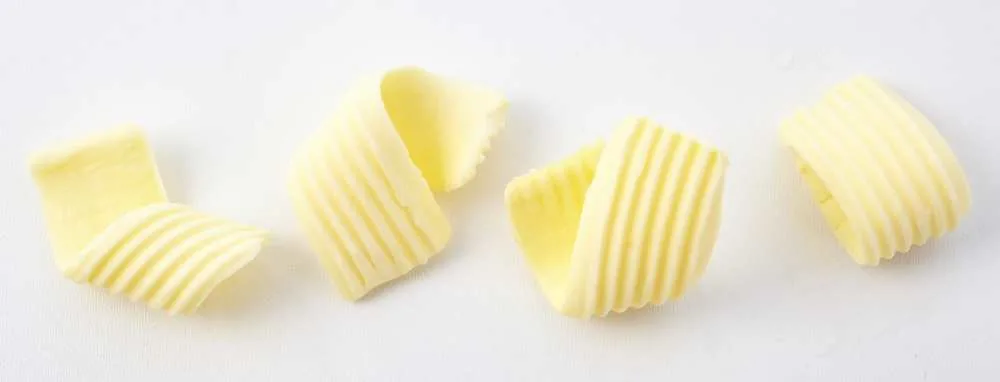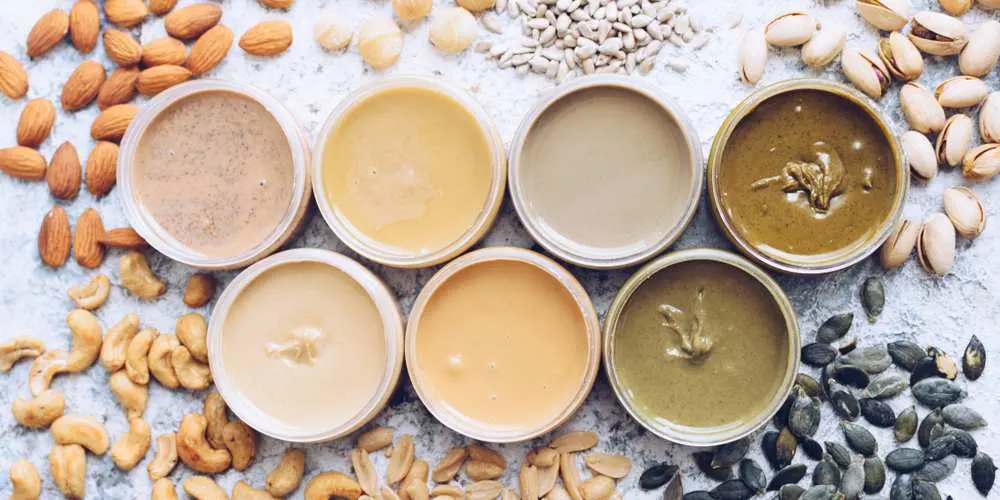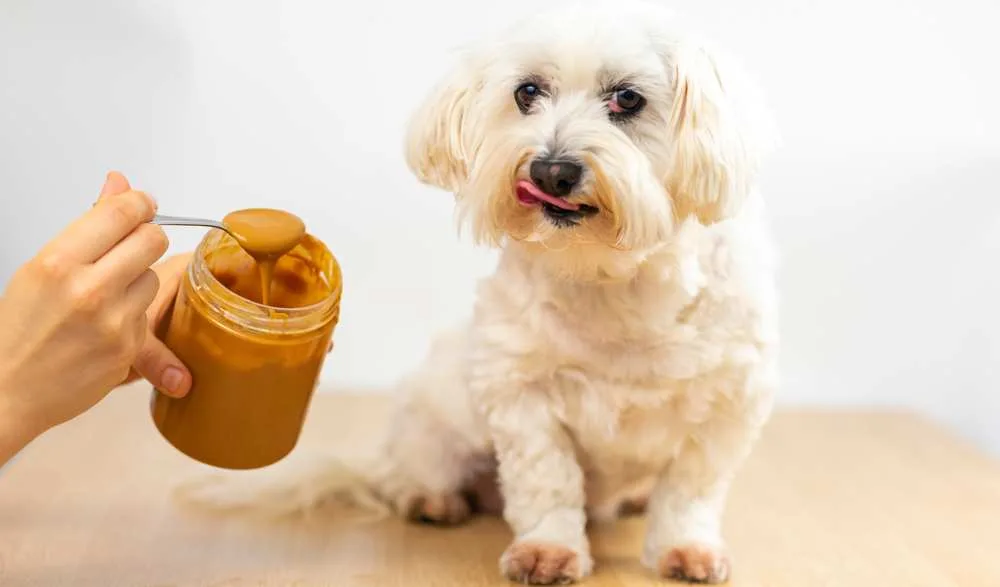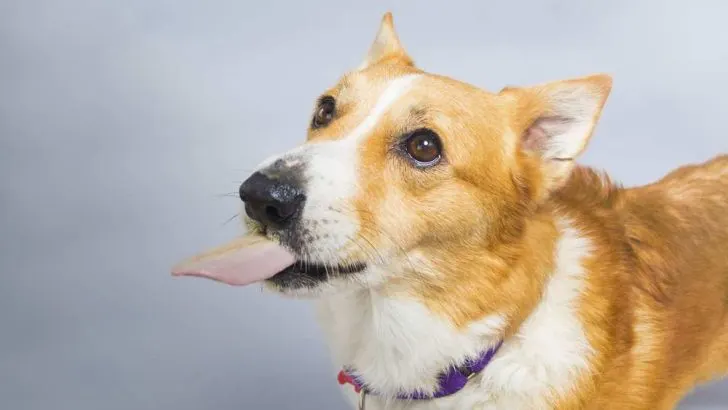Butter can make anything better, and that is why it is a staple ingredient in most recipes. It can make cookies fluffier, freshly baked bread more delicious and soft, and can give that kick of flavor to your pan-fried foods.
A stick of butter was probably often found on your countertop as you were growing up, as it was a part of almost every meal. Moreover, you probably already know by now that butter has to be eaten in moderation because of its high-fat content. Although it may yield a few health benefits, butter has been a subject of controversy in the world of nutrition for a long time.
But today, as you were preparing ingredients for yummy chocolate chip cookies, Buddy sneaked behind your back and ate a small chunk of butter. It was too late when you realized he already swallowed most of it, so now you are worrying something would happen to him. You immediately start searching – ‘Can Dogs Eat Butter?’ on the internet and calling your vet on the phone.
Before you start panicking, read our article as we thoroughly searched this topic and came up with some interesting information, so read on!

Can Dogs Eat Butter?
The short answer would be – no, dogs can’t eat butter. Technically, they can eat it, and it’s tasty to them, but the butter shouldn’t be a part of a dog’s diet. Butter can only cause health problems and lead to severe health conditions in dogs that could be fatal if not treated immediately.
Let us explain this – butter has almost 12 grams of fat per tablespoon. Dogs need 14 grams of fat per day, and with just one tablespoon of butter, they would exceed their daily fat intake.
Nutritional Value Of Butter
Butter is a dairy product. The process of making butter includes churning milk, which means separating the liquid from solid fats. The butter is made from different mammals milk, such as cow, goat, buffalo, sheep, etc.
Butter has a white-yellowish color and a rich, creamy texture. Butter is best for high-heat cooking and prevents food from sticking while adding delicious flavor and soft texture. This dairy product is also used for making desserts and baking goods, as it adds volume and texture. Butter can also be added to many different dishes such as roasted veggies, pasta dishes, bread, salads, etc.
Nutritional value of butter per 1 tablespoon (14 grams):
| Calories | 102 |
| Total fat | 11,5 grams |
| Saturated fat | 7 grams |
| Trans fat | 0,5 grams |
| Monounsaturated | 3 grams |
| Polyunsaturated | 0,4 grams |
| Cholesterol | 30,5 mg |
| Sodium | 1,6 grams |
| Protein | 0,1 grams |
Butter also contains potassium, vitamin A, vitamin B12, vitamin E, vitamin D, and vitamin K. So, now you will probably ask – but butter contains some vitamins, how could that be bad for my dog? Well, your dog would have to eat a lot of butter before he reaps any health benefits from it.
But that would also be fatal for your dog. That’s because, as you can see, there are no good nutrients in butter for your dog. Butter is high in calories and unhealthy fats, such as trans fat and saturated fat.
That doesn’t mean your four-legged friend will get sick or poisoned from a little bit of butter, but it can lead to serious health conditions and obesity in the long run.
Cholesterol Problem
Dogs can also suffer from heart conditions, so their cholesterol levels need to be controlled. Moreover, some dog breeds are predisposed to have high cholesterol, and certain health conditions in dogs like diabetes or adrenal disease can also cause cholesterol.
Bear in mind that butter contains 31 mg of cholesterol, and it can be terrible for dogs with metabolic diseases or dogs with obesity. High cholesterol is a disease called hyperlipidemia (excess amount of fat in the bloodstream). This condition can be prevented, and that’s why it is vital to avoid giving your dog butter at all costs.
Nevertheless, here are the signs of high cholesterol:
- Vomiting
- Diarrhea
- Abdominal pain
- Cloudy eyes
- Fat deposits under the skin (lumps filled with a greasy substance)
- Decreased appetite
- Lethargy

Which Type Of Butter Can My Dog Eat?
The two main types of butter are – salted and unsalted. Salted butter has to be avoided in your dog’s diet because of its high sodium content. Salt in a dog’s diet can cause sodium poisoning. That condition can be lethal for your dog.
Unsalted butter isn’t good either, but if you still want to use small amounts of butter to mix with your dog’s food, always use this one. There is also ‘natural’ cultured butter, which offers more minerals and vitamins and is a far better choice for your dog’s health.
Can Dogs Eat Vegetable Oil Spread Or Margarine?
No. These spreads are just as high in cholesterol and fat as butter. These spreads also contain lots of preservatives and other added ingredients that can be harmful to your dog.

Are There Any Health Benefits Of Butter For Dogs?
No, there are no health benefits of butter for dogs. Butter is composed almost entirely of fat and has small amounts of a few vitamins.
You can also find naturally cultured butter with higher vitamin and mineral content. However, there are still healthier foods for your dog, specially designed based on daily calorie intake. Dog’s diet should mainly consist of high-quality dog food which contains animal protein, carbs, and healthy fats. Vegetables, legumes, and other treats should only make up 10% of their diet, so they can remain healthy and have a longer life.

The Risks Of Feeding Your Dog Butter
Lactose Intolerance
First of all, many dogs are lactose intolerant. That means that they can’t digest dairy products like milk, cheese, and butter.
The symptoms of lactose intolerance are:
- Abdominal sensitivity
- Diarrhea
- Gas
- Vomiting
- Nausea
- Bloating
- Drinking excessive amounts of water
If you’re not certain whether your dog is lactose intolerant and he also ate a chunk of butter, monitor him closely. If you notice any signs of lactose intolerance or allergy, take him to the vet as soon as possible.
Pancreatitis
Dogs are simply not designed to eat and digest too much fat content. Moreover, high-fat levels in their food can cause inflammation of the pancreas, also called pancreatitis.
Signs of pancreatitis in dogs:
- A very painful abdomen, indicated by a hunched back, inability to get comfortable
- Vomiting
- Diarrhea
- No appetite
- Fever
- Irregular heart rate
The pancreas participates in the digestive process by releasing the enzymes that break the food down. When your dog overeats with fatty foods, the pancreas slows down as it can’t release the enzymes fast enough to break it down. This leads to pancreas inflammation, which is very painful and has to be attended to immediately.
Furthermore, pancreatitis needs to be treated at the vet clinic with IV fluids and pain medication. Needless to say that most healthy dogs recover from this condition. However, older dogs or dogs with diabetes (or other health conditions for that matter) have a much harder time recovering.
The consequences of pancreatitis are not naive. A dog that recovered from pancreatitis will have to be on a low-fat diet for the rest of his life and may have to drink medications every day. In addition, even the slightest increase in fat can trigger a relapse.
Having all of this in mind, is it really worth risking your dog’s health for a little bit of butter? We think not!
Learn More: What Can Dogs Eat? A Comprehensive List Of Dog-safe Foods


